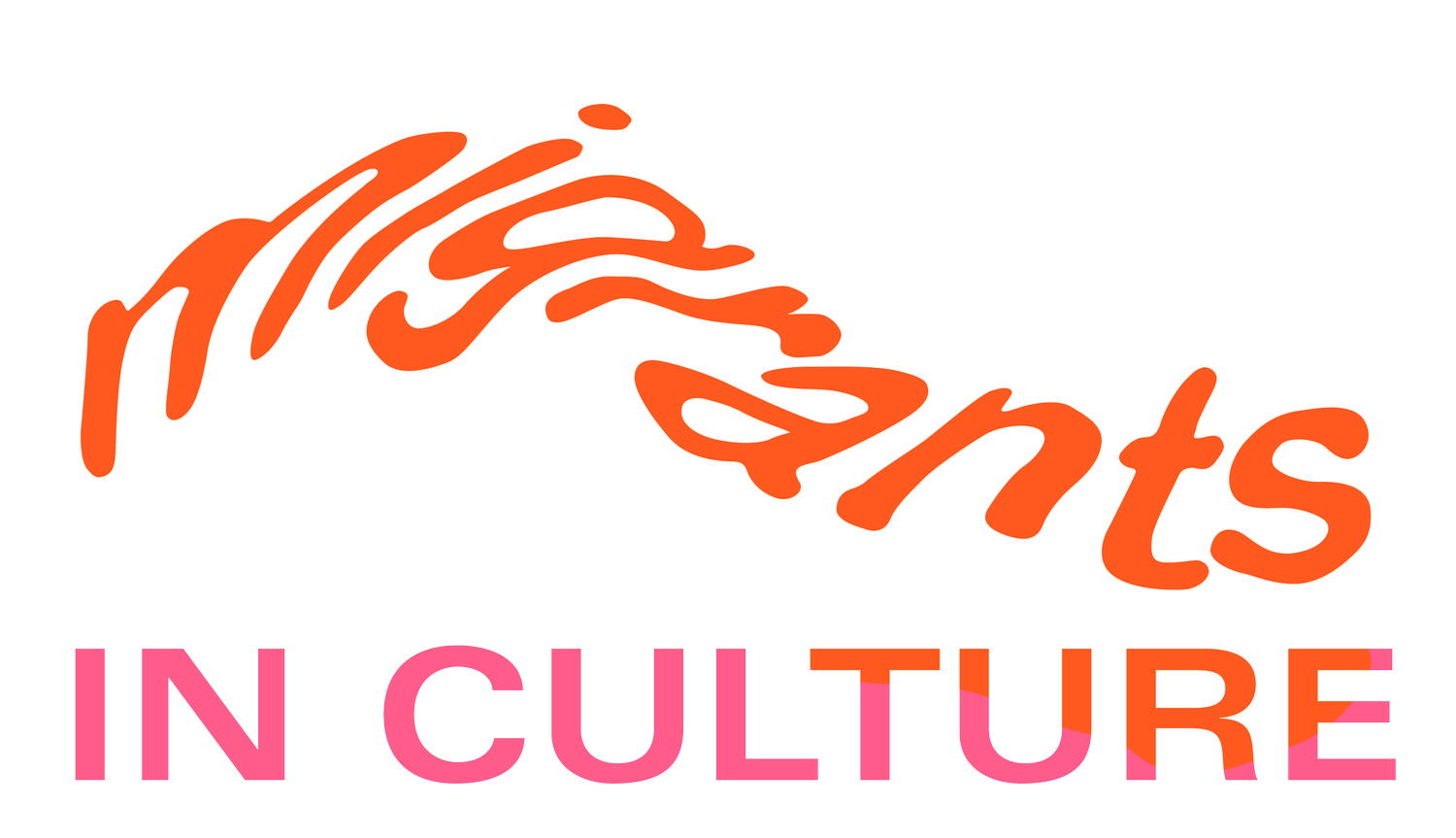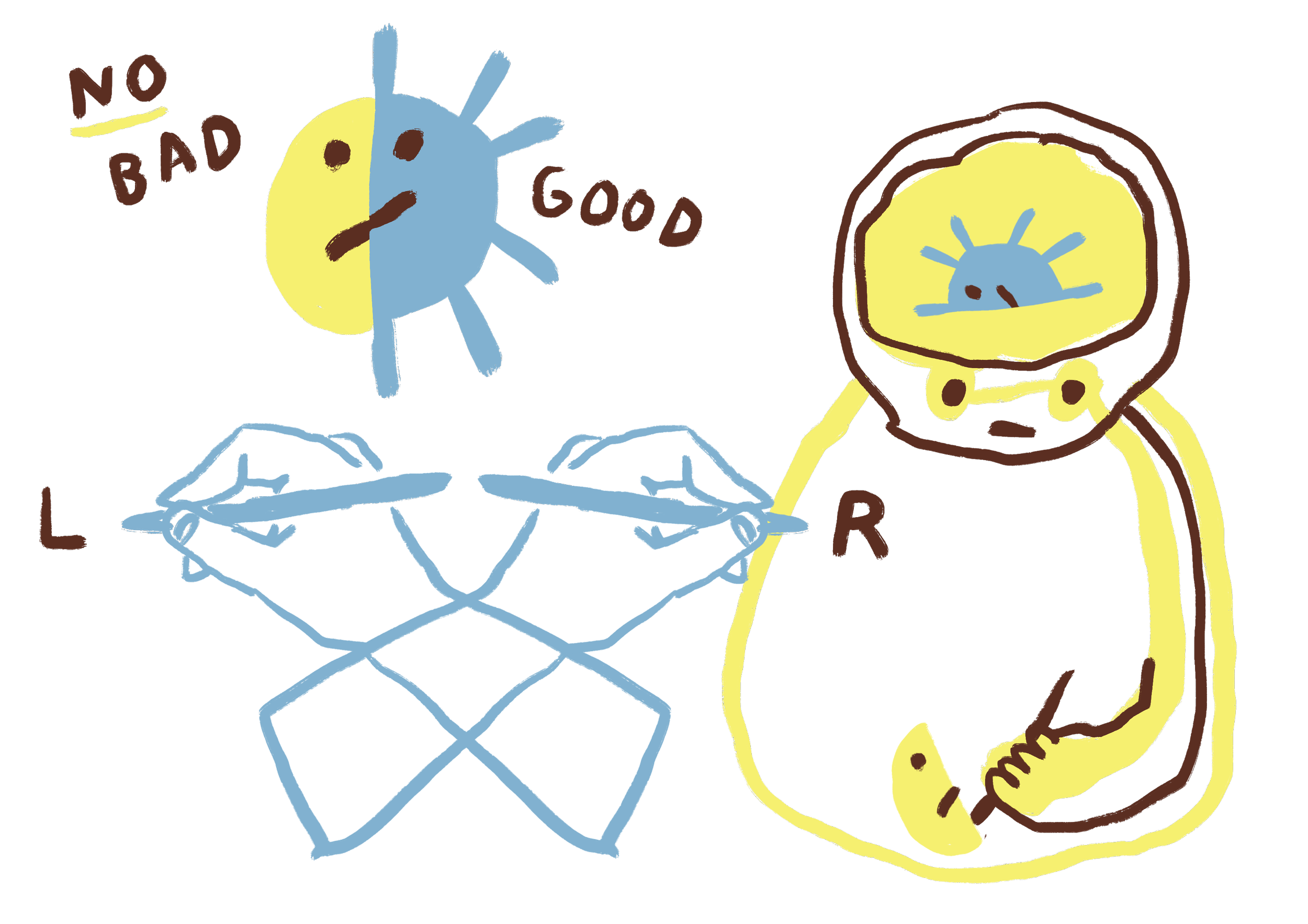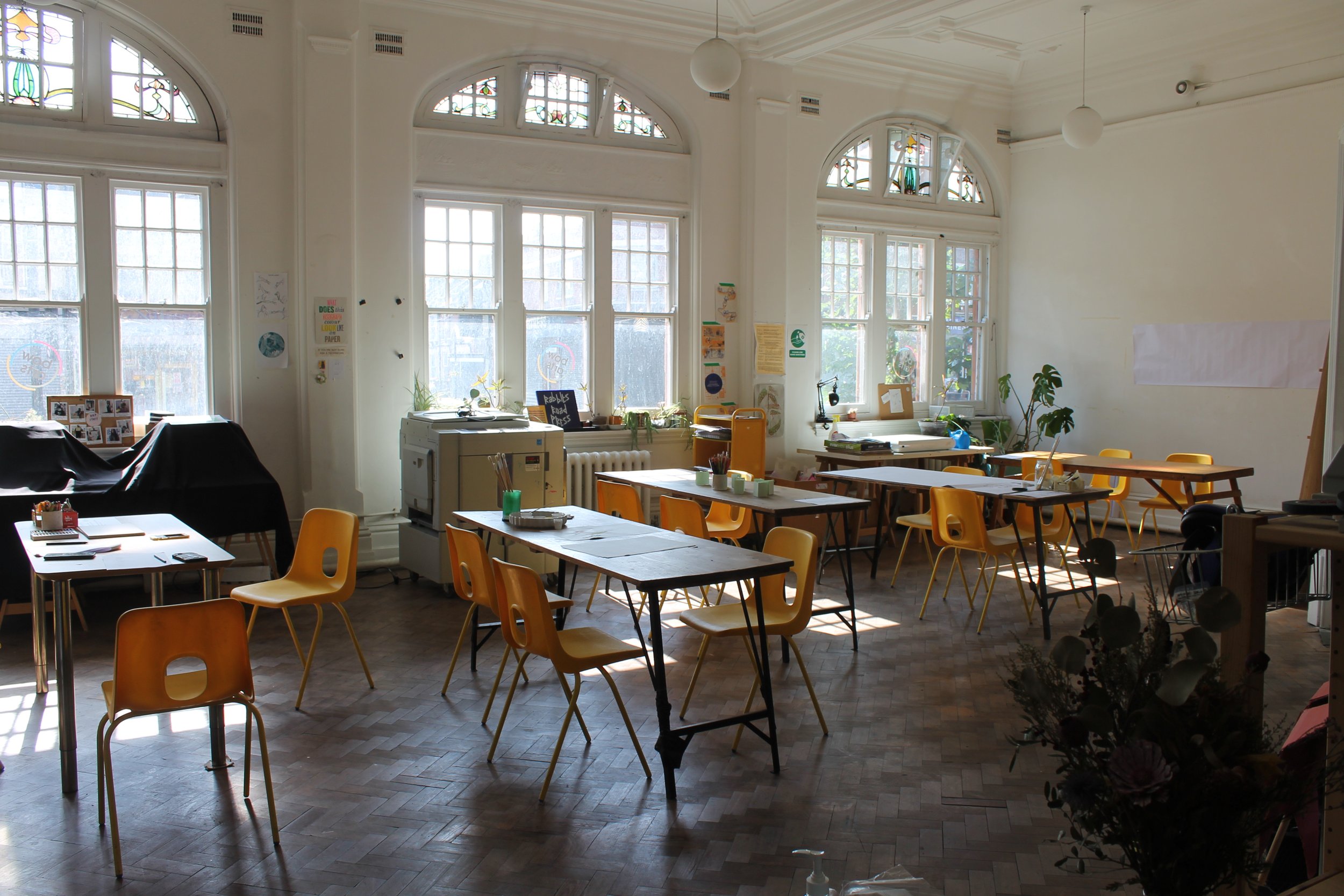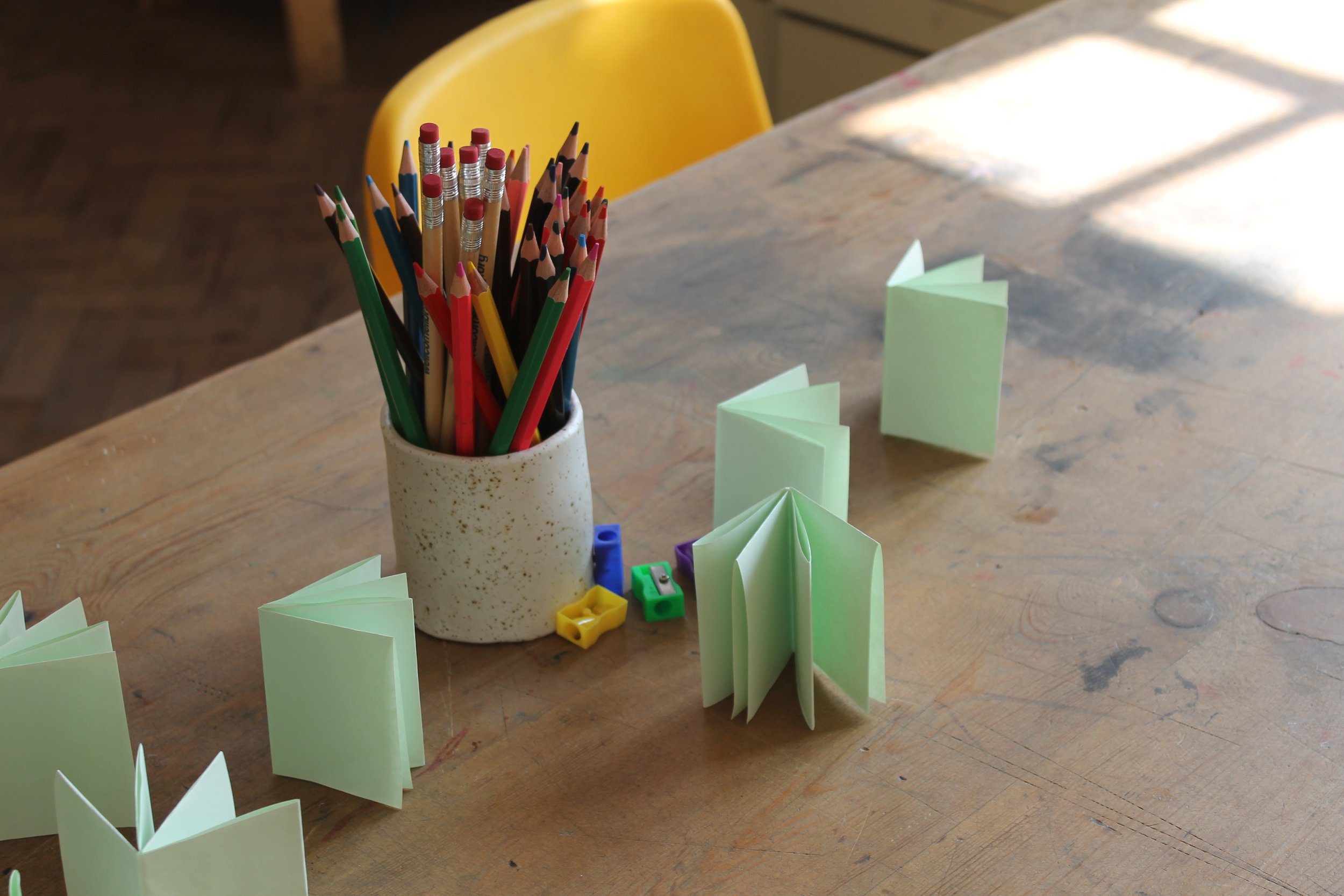Visual Organising 2023
Hello and welcome
to our first visual organising learning community!
We’re super excited to learn, draw and organise with you over the coming months.
Support
If you need support, email Rosalie on rosalie@migrantsinculture.com
or check in on our telegram group.
Practice, practice, practice
Draw every day. Even if it’s just 10 seconds.
You can also draw with your eyes: Focus on something and slow down your breathing. Trace every line with your eyes, focusing on the details.
Check out and add to the resources padlet
Join our telegram support group and share your drawings.
Click here to get the zoom link for all sessions
Session 1
13 June, 6-8 pm, zoom
You can find the slideshow here to catch up, recap or try the exercises again.
Exercise 1 (20-30min) before 1st session
Minimise the screen and listen to this talk with Gracie Mae Bradley and Luke de Noronha about their book Abolish Borders.
Try to doodles or make drawings for at least 5 minutes of it. Your drawings should be on a big piece of paper (A3). You can choose your range of colours, but we recommend limiting yourself to one. It’s ok if the drawings only make sense for you, as long as they increase your understanding. Ideally, you can use your drawings to relay the talk to another person. Share your process or final drawing with us on our telegram group if you like.
Session 2
18 July, 6-8 pm, zoom
You can find the slideshow here to catch up, recap or try the exercises again.
Exercise 2 (30-60min) before 2nd session
Listen to the Still We Rise podcast with Loraine Masiya Mponela, CARAG
Content note: This recording includes first-person stories about surviving the violence of the Hostile Environment and the Covid-19 Pandemic. If this is too much or too close for you right now, let us know and we’ll send you a different recording.
Use the tools you’ve learnt in the first session and make graphic recordings of this podcast. You can do this for the full length or any time that suits you.
Decide before you draw:
Where is your body? Do you want to sit, move, lie down…
What materials will you use? How many colours? What size paper?
What will you listen for?
Any visual clues, shapes, tools you want to prepare?
✨Bonus material ✨
https://shado-mag.com/do/10-tips-for-refugees-whose-statuses-have-not-been-determined/
Session 3
16 September, 12-5 pm, Rabbits Road Press, London
This session will be our in-person training day at the amazing community riso printer Rabbits Road Press, run by OOMK.
We’ll learn more about disability justice and access from Kaiya Waerea and we will practice, practice, practice. You’ll be able to try out different drawing tools, from DIY brushes to digital.
We will provide hot + cold drinks, fruit and light snacks. Please bring your drawing tools, sketchbooks, visual notes or anything else you would like to share.
Do you need any support to attend this day? You might want a quiet space, need support with travel costs, wear masks… or similar needs, please, get in touch with Rosalie@MigrantsInCulture.com.
Exercise 3 (60 - 120min) before 3rd session
Listen to this conversation between Prentis Hempill and Mariame Kaba
Use a drawing method you don’t usually use. This might be watercolours and a big brush instead of a pencil. Or you might want to draw standing up if you usually draw sitting down.
This is a really deep and big conversation, so it will be nearly impossible for you to capture it all. Instead, try to get in the flow and capture what resonates with you most. You’re not listening so much for information, treat it as a very open, creative and inspiring process, capturing small souvenirs.
If this task feels overwhelming, choose 10 minutes and focus on them.
Exercise 4 (30 min) before 3rd session
Research an organiser, writer, activist, culture worker, artist, creative person (or collective) who inspires you.
Prepare an A3 page on this person/collective. This could include cut out images, like a mood board or fan page, drawings and your interpretations of their work. Focus on the joy and pleasure you get from their work and how you could share this with others.
Bring your research to our in-person meeting on the 16th.
Session 3
Exercises from our in-person day at Rabbits Road Press
The Big Ink:
Use the brushes, straws or fingers to draw a big dream of yours.
Don’t hold back, dream wildly and draw freely.
This is a big collaborative drawing, so dreams will inevitably melt into each other.
Life is a Journey
Using the small booklets and pencils, map your journey to Rabbits Road Press today. You can be as abstract or real as you like.
Repeat, repeat, repeat
Choose an object on this table or an object you carry with you today.
Using the wax crayons and A3 papers, draw the object over and over. At least 5 times.
We are here
Trace around your hand or foot and add drawings or words to this outline. Maybe each finger becomes a character or you want to show us where you’ve recently walked.
Use the pencils to trace around your body part and the watercolours to add your imaginative drawings.
Conversation:
Find yourselves in groups of 2-3 people. Choose your materials and decide if you would like to sit on a table or draw on a wall.
Each of you has 5 minutes to talk about what they are currently working on or doing. The other people draw what they can hear. Listen for details that bring the stories alive. Your drawings can be realistic or abstract, soft doodles or hard facts, whatever you feel like.
Reflective questions after this exercise: What did we notice? How does it feel to draw while somebody is talking? Anything we’ve learnt from this?
Kaiya Waerea gave us an insightful talk about Disability Justice.
You can see the slides again here and read the 10 principles of Disability Justice.
After reminding us that “our bodies are with us in this work”, Kaiya introduced us to the Equalities Act, the current situation in the UK, & Disability Justice. We heard about different models of disability and reflected on the principles coined by the Disability Justice Collective. Kaiya also challenged us to connect this with our design practices: “As designer Josh A. Halstead says, ‘when it’s okay to erase human diversity, you don’t plan on diverse bodies being around, and so you don’t design for them.’ Design casts people into the future by who it presumes its audience, user, client, & subject is. When design presumes non-disabled-ness, it erases disabled people. Disability Justice orients itself toward a future which doesn’t eradicate disability, but in which everyone’s particular needs are believed, respected and supported. Design practise can choose to do this too. Thinking about accessibility requires a sitting with the urgency of understanding our present reality as murderous.” We then read more about different access prompts and questions from Kaiya’s 'Access Questions for self-publishing’ guide.
Thank you Heiba Lamara from OOMK / Rabbits Road Press for supporting us on the day. You can see a full list of library books and materials on our resources padlet.
Session 4
10 October, 6 - 8pm, on zoom
Our last session of this training, which will focus on how we integrate our new skills into our organising, campaigning and everyday life.
Exercise 5 (5 - 30 min) before forth session
Try out your visual organising skills in a meeting, event, talk or other gathering.
Alternatively, you could ask a friend to tell you about their day and try to draw it.
Exercise 6 (60 min) before forth session
Choose one visual recording you have made during this course. Ideally, this would be one that includes multiple pages.
Edit your drawings so they fit on up to 3 A4 papers. You can decide your editing criteria: Clarity, Fun, Experimental…
Optional training day at Solidarity Knows No Borders
If you’ve signed up to do visual organising with us at the Solidarity Knows No Borders summit (29th and/or 30th September) and you haven’t heard from Migrants Organise, email Rosalie@Migrantsinculture asap.






















